”Beyond the sphere that widest orbit swings,
passes the sigh that leaves my heart below“
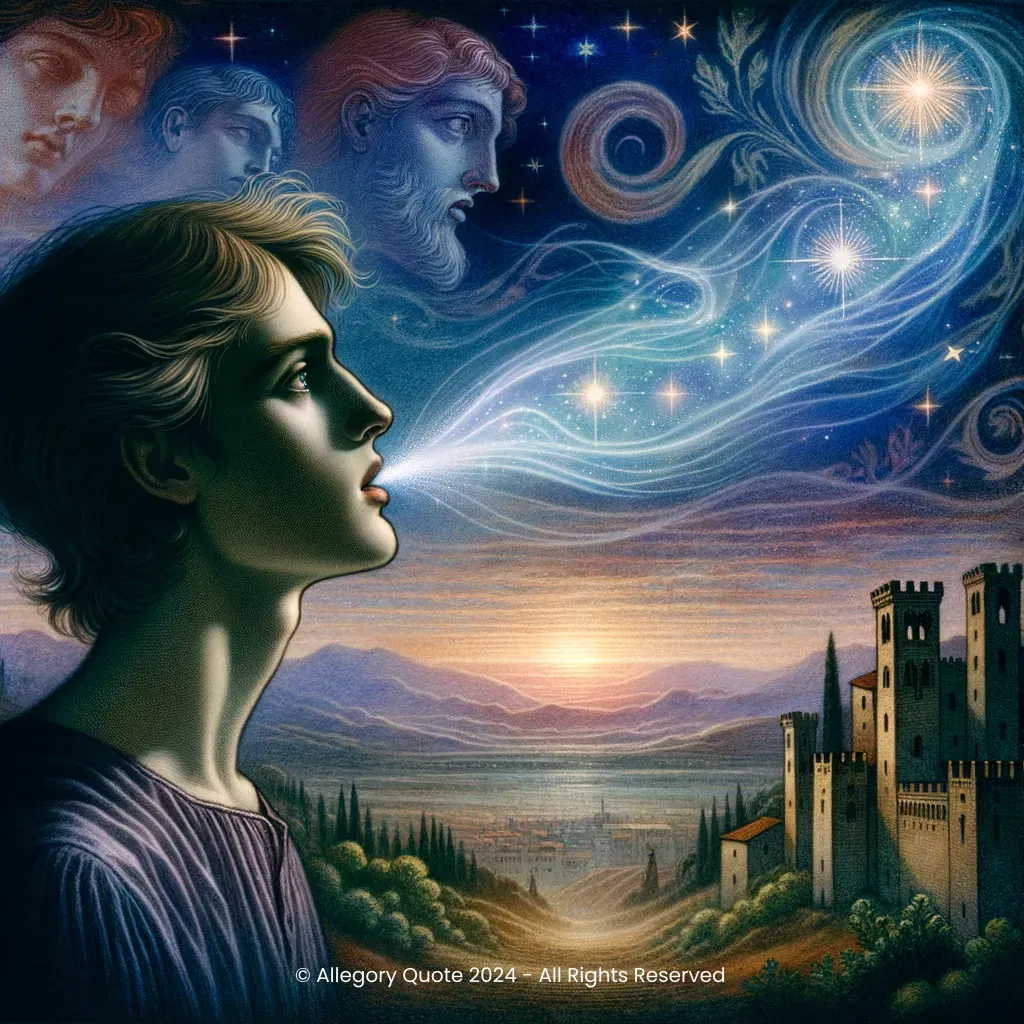
- Meaning
- The meaning of this phrase reflects the author's inner torment, his longing for love, and his desire to transcend physical limits to reach the object of his affection. Petrarca expresses how his sigh (a symbol of his love and passion) goes beyond the "sphere" (an allegory of the Universe or the heavens), surpassing the boundaries of the material world. This passage illustrates the tension between earthly desire and spiritual aspirations.
- Allegory
- The young romantic figure represents Francesco Petrarca or a similar soul, with his sigh symbolizing his love and desire. The luminous breath heading toward the sky represents the transcendent power of love and the human spirit. The 14th-century Italian landscape with medieval elements provides an appropriate historical context and recalls the original setting of the work. The celestial sphere and stars symbolize the limits of the physical universe that the poet's love attempts to surpass. The juxtaposition of melancholic and passionate colors reflects the contrasting feelings of pain and hope.
- Applicability
- The meaning of this phrase can be applied to personal life situations involving unrequited love or deep yearning. It symbolizes feelings of aspiration, hope, and pain that often accompany human experiences of intense, unshared love. In everyday situations, we can see it as a metaphor for the strength of our emotions and passions, which can push us beyond physical and material boundaries.
- Impact
- The phrase and the Canzoniere as a whole have had a significant impact on culture and literature. Petrarca is considered the father of Renaissance Humanism, and his work influenced later poets such as Dante Alighieri and Geoffrey Chaucer. The Canzoniere helped establish the sonnet as a poetic art form in European literature.
- Historical Context
- Francesco Petrarca's Canzoniere was written in the 14th century. This period is known for being at the end of the Middle Ages and the beginning of the Renaissance, an era characterized by a renewed interest in classical philosophy, literature, and art. Petrarca's poetry profoundly influenced subsequent Italian and European literature, providing forms and themes that became models for Western lyric poetry.
- Criticisms
- There are no major controversies associated with this particular phrase. However, some criticisms may arise from a modern perspective about the excessive idealization of love and the portrayal of women as objects of platonic desire. Such interpretations might appear outdated when viewed through a contemporary lens.
- Variations
- There are no significant variations of this specific phrase by Petrarca, but similar themes can be found in love poetry from other cultures. For example, in the Persian poetry of Rumi, there are expressions of love that transcend physical boundaries, showing how the concept of universal and transcendent love is present in different poetic traditions.
-

Every tongue should confess that Jesus Christ is Lord, to the glory of God the Father.
-
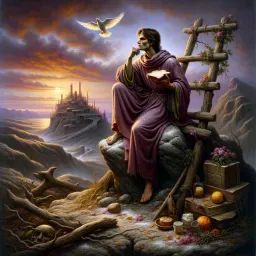
You will taste how salty another's bread is, and how hard it is to tread another's stairs up and down.
-

Love is blind, and lovers cannot see the pretty follies that themselves commit.
-
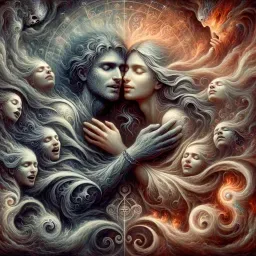
Love, which absolves no loved one from loving, seized me so strongly with his charm that, as you see, it does not leave me even now.
-
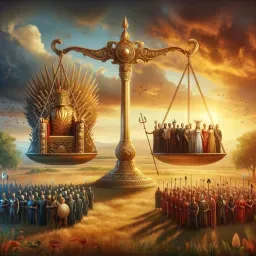
Power tends to corrupt, and absolute power corrupts absolutely.
-
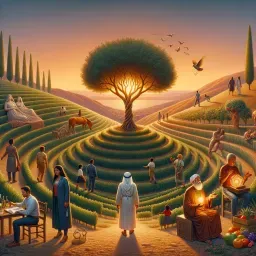
There is no other life; why don’t you give your whole heart to this one?
-

Love is not love which alters when it alteration finds, or bends with the remover to remove.
-

You were not made to live like brutes, but to follow virtue and knowledge.
-

Prophet of doom.
-

There the dreadful Erichtho writhed, who summoned back the shadows to their bodies.
-
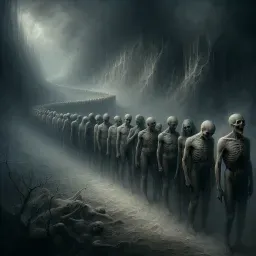
I saw such a long throng of people, I would not have believed death had undone so many.
No Comments